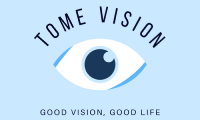Glaucoma Early Detection and Prevention
Introduction:
Glaucoma is a group of eye disorders characterized by damage to the optic nerve, leading to progressive vision loss. It is one of the leading causes of vision impairment and blindness worldwide. While glaucoma cannot be cured, early detection and treatment can significantly slow down its progression and preserve vision. In this article, we will discuss the importance of early detection and prevention strategies for glaucoma.
Early Detection:
Regular Eye Exams:
Regular eye exams play a crucial role in the early detection of glaucoma. Eye doctors will perform various tests, including tonometry, which measures the pressure inside the eyes, and visual field tests to evaluate peripheral vision. These tests can help identify signs of glaucoma before any symptoms manifest.
Know Your Risk Factors:
Certain individuals are at a higher risk of developing glaucoma. These include people above the age of 60, individuals with a family history of glaucoma, individuals of African, Hispanic, or Asian descent, and individuals with certain medical conditions such as diabetes or high blood pressure. Being aware of your risk factors can prompt you to be more vigilant about getting regular eye exams and seeking appropriate preventive measures.
Prevention:
Healthy Lifestyle Choices:
Maintaining a healthy lifestyle can play a significant role in preventing glaucoma or slowing its progression. Some lifestyle choices to consider include:
1. Regular Exercise: Engage in moderate exercise such as brisk walking or swimming, as it can improve blood flow to the eyes and reduce intraocular pressure.
2. Balanced Diet: Consume a diet rich in fruits, vegetables, whole grains, and lean proteins. Foods that promote eye health include leafy greens, citrus fruits, carrots, and fish rich in omega-3 fatty acids.
3. Limit Caffeine and Alcohol: It is advisable to limit the intake of caffeine and alcohol, as excessive consumption can increase eye pressure.
Eye Protection:
Protecting your eyes from injury is another crucial preventive measure. Use safety goggles or protective eyewear when participating in sports or engaging in activities with potential eye hazards. Additionally, during prolonged sun exposure, wear sunglasses that block both UVA and UVB rays to shield your eyes from harmful ultraviolet radiation.
Regular Eye Drops:
Some individuals may be at increased risk of developing elevated eye pressure, which is a major risk factor for glaucoma. In such cases, eye drops prescribed by an eye doctor can help regulate eye pressure and reduce the risk of glaucoma. Adhere to your doctor’s instructions regarding the frequency and dosage of the prescribed eye drops.
Conclusion:
Glaucoma is a serious eye condition that requires early detection and preventive measures to minimize its impact on vision. Regular eye exams, understanding your risk factors, and adopting a healthy lifestyle can significantly contribute to the early detection and prevention of glaucoma. By taking proactive steps, you can protect your vision and reduce the risk of irreversible vision loss caused by glaucoma.
